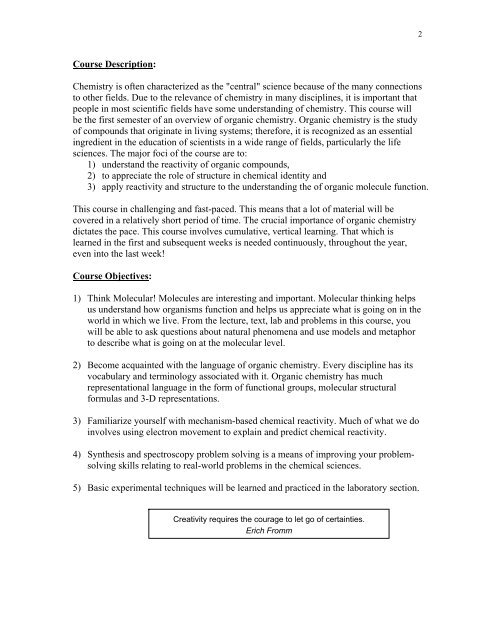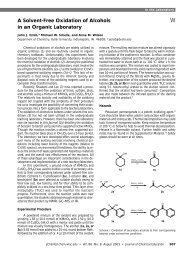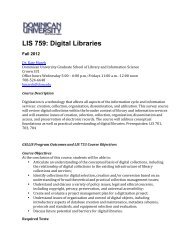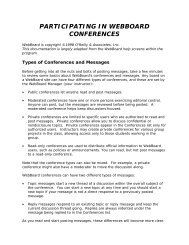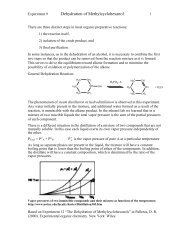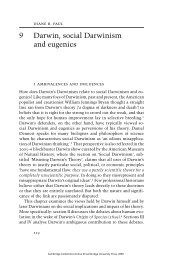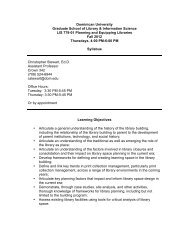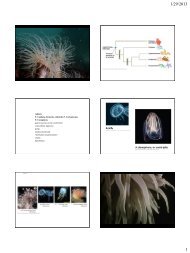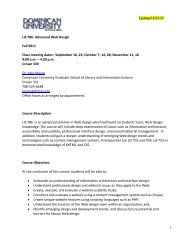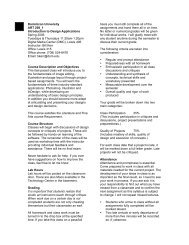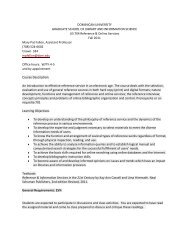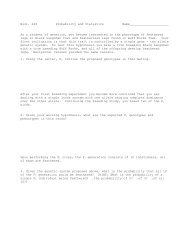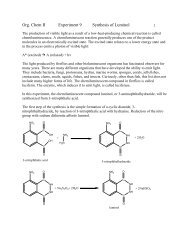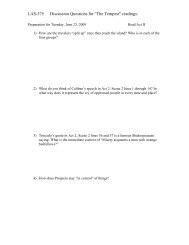SYLLABUS Organic Chemistry I CHEM253 Fall 2008
SYLLABUS Organic Chemistry I CHEM253 Fall 2008
SYLLABUS Organic Chemistry I CHEM253 Fall 2008
Create successful ePaper yourself
Turn your PDF publications into a flip-book with our unique Google optimized e-Paper software.
2<br />
Course Description:<br />
<strong>Chemistry</strong> is often characterized as the "central" science because of the many connections<br />
to other fields. Due to the relevance of chemistry in many disciplines, it is important that<br />
people in most scientific fields have some understanding of chemistry. This course will<br />
be the first semester of an overview of organic chemistry. <strong>Organic</strong> chemistry is the study<br />
of compounds that originate in living systems; therefore, it is recognized as an essential<br />
ingredient in the education of scientists in a wide range of fields, particularly the life<br />
sciences. The major foci of the course are to:<br />
1) understand the reactivity of organic compounds,<br />
2) to appreciate the role of structure in chemical identity and<br />
3) apply reactivity and structure to the understanding the of organic molecule function.<br />
This course in challenging and fast-paced. This means that a lot of material will be<br />
covered in a relatively short period of time. The crucial importance of organic chemistry<br />
dictates the pace. This course involves cumulative, vertical learning. That which is<br />
learned in the first and subsequent weeks is needed continuously, throughout the year,<br />
even into the last week!<br />
Course Objectives:<br />
1) Think Molecular! Molecules are interesting and important. Molecular thinking helps<br />
us understand how organisms function and helps us appreciate what is going on in the<br />
world in which we live. From the lecture, text, lab and problems in this course, you<br />
will be able to ask questions about natural phenomena and use models and metaphor<br />
to describe what is going on at the molecular level.<br />
2) Become acquainted with the language of organic chemistry. Every discipline has its<br />
vocabulary and terminology associated with it. <strong>Organic</strong> chemistry has much<br />
representational language in the form of functional groups, molecular structural<br />
formulas and 3-D representations.<br />
3) Familiarize yourself with mechanism-based chemical reactivity. Much of what we do<br />
involves using electron movement to explain and predict chemical reactivity.<br />
4) Synthesis and spectroscopy problem solving is a means of improving your problemsolving<br />
skills relating to real-world problems in the chemical sciences.<br />
5) Basic experimental techniques will be learned and practiced in the laboratory section.<br />
Creativity requires the courage to let go of certainties.<br />
Erich Fromm


